How to Protect Chickens from Predators
If you’re new to raising chickens or even a veteran, this guide should be helpful to you. I’m sharing a few awesome solutions on how to protect chickens from predators.
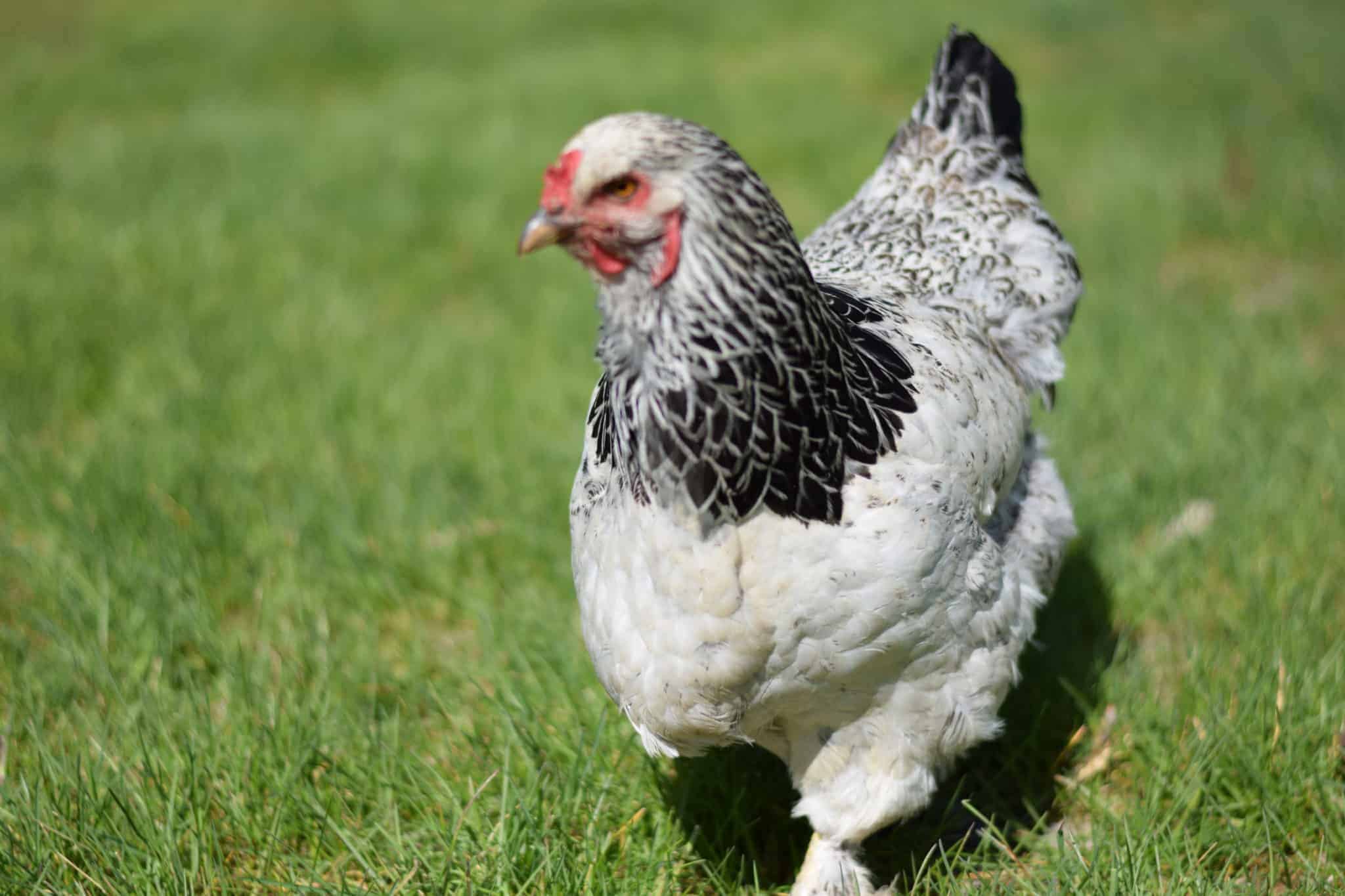
If you have been following along with my blog for a little while, you’ll know that we don’t free range our chickens anymore.
And since we made the changes, we have come up with a few out of the box solutions to chicken predator control.
Some days, I miss watching our chickens free range through our yard. But I also have a love hate relationship with free range chickens.
I love when they joyfully greet me while I’m working outside. And I loved watching them run across the yard. I mean, that’s pretty hilarious and adorable.
What I don’t love is how they were always getting into places that I didn’t want them to be. Like my garden where they would totally destroy everything.
Or they would end up on my deck where they would literally poop on everything.
And while I do enjoy watching them, it’s just not safe for them to free range where we live. Predators are way too common. During the day even. Which is completely ridiculous.
How to Protect Chickens from Predators
Ugh, predators. They are seriously my nemesis. They make me angry and sad at the same time. I understand the role they play in this world, but it still won’t stop me from protecting my homestead animals!
During these past few years on our homestead, we have had to battle predators like raccoons, opossums, foxes, skunks, owls, and chicken hawks. Each comes with a different plan of attack.
I’m sharing a few of our solutions to the predator problems we face on our homestead. It’s taken a lot of hard work and dedication. But I feel we are finally getting a better handle on finding solutions that work for us.
Not everything will work perfectly for everyone. Some of these things will work great for one person and it may not work for another.
It does take some trial and error to find the right solution! And you know what, that’s a huge part of this lifestyle for us – we learn as we go.
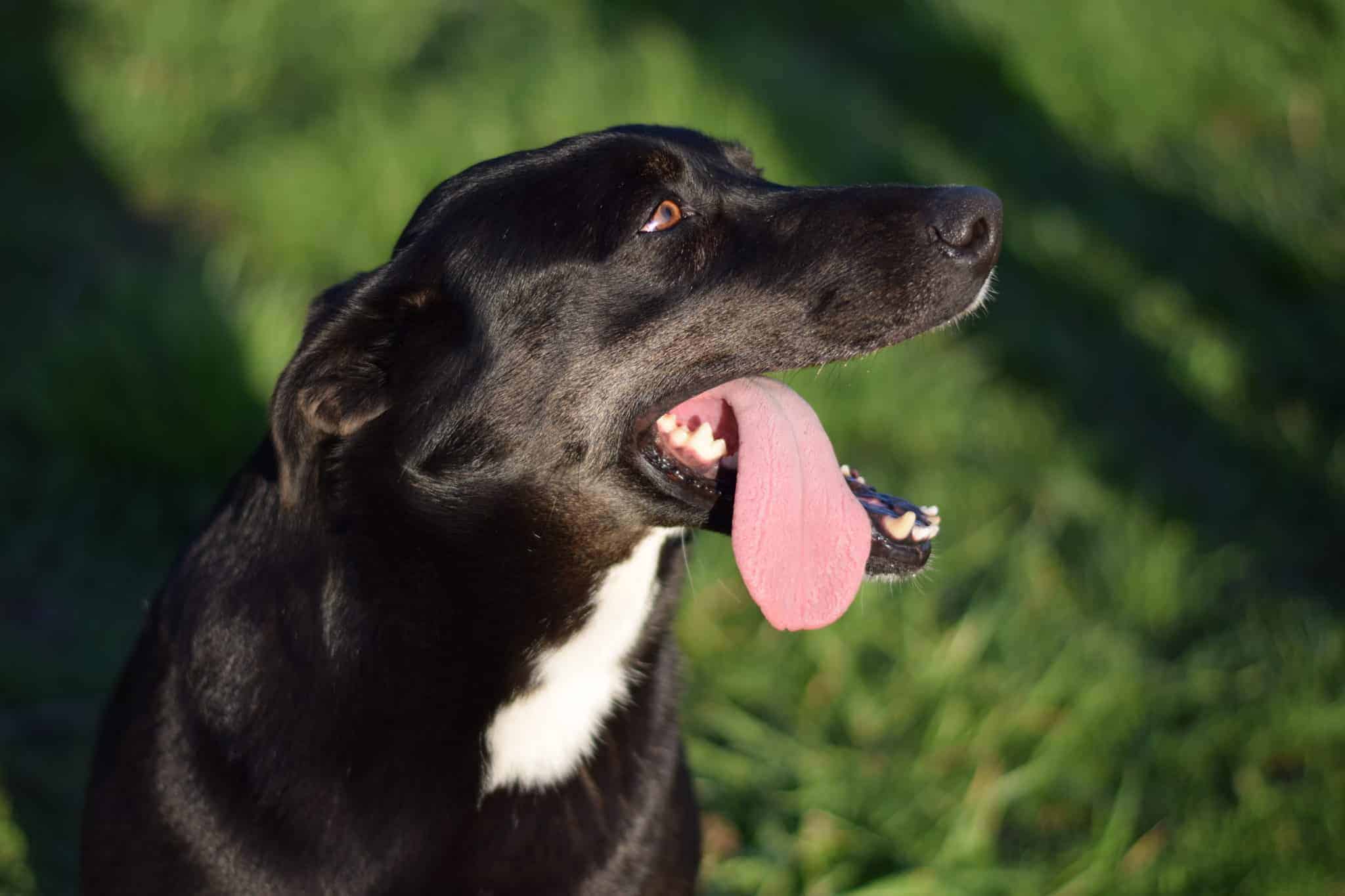
Find a Livestock Guardian
Some people love to use certain breeds of dogs as a guardian (LGD) for their chickens. There are some dogs that are specifically bred for this task and some other dog breeds just will not work for this.
A little while back, we had a Border Collie that we had rescued and brought her back to our farm. But, she wasn’t a great fit as a LGD or a match for our other animals.
We only had her for a few short days before she got ahold of our flock and killed one of my best roosters. She was pretty set in her ways and just didn’t work for us so, we decided to re-home her to a good family.
Currently on our homestead, we have a Hanging Tree/Australian Shepherd cattle dog who we have trained to love our chickens.
My husband has trained her extensively and she is a perfect working dog. Not only does she help move cattle and goats, she helps protect the chickens, guineas, and ducks. Plus, she’s an awesome companion.
A couple of other breeds to consider as a LGD are Great Pyrenees, Anatolian, and Akbash.
A few things to consider when using dogs as a LGD. Start them young. Buy or adopt your LGD as a puppy and begin the intensive training phase. This can take a lot of time and patience, but it will pay off in the end.
Eventually, we will add a dog specific for this task alone. I’m just not at a place where I have time to train a dog. So for now we need some out of the box solutions to chicken predator control.
And that means learning new ways on how to protect chickens from predators.
Here is what we’ve been doing…
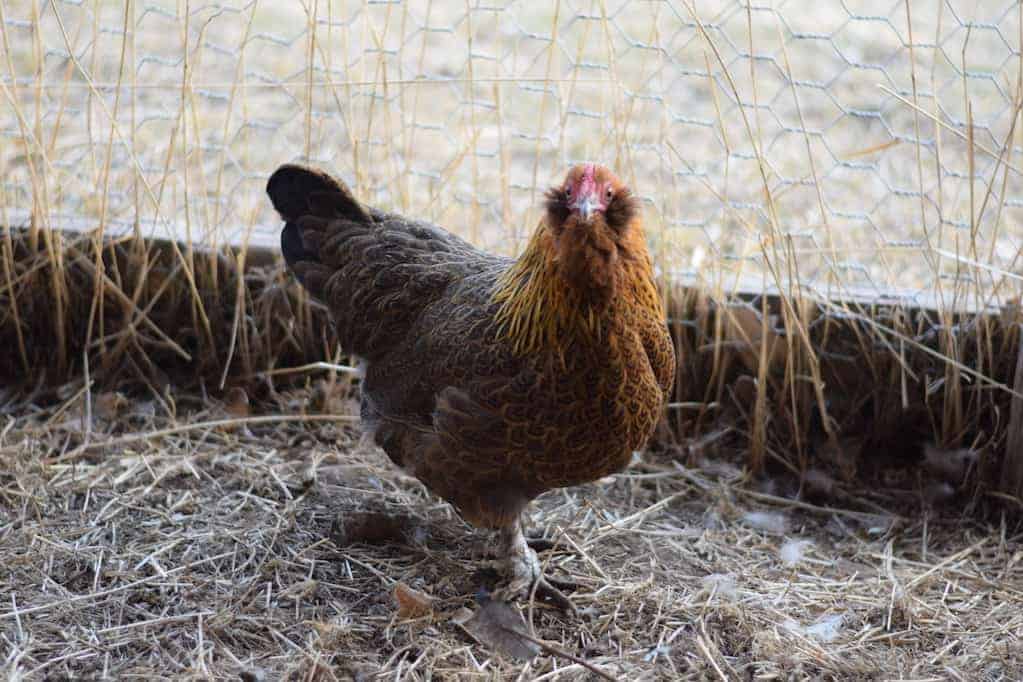
Want to save this?
Other Livestock Guardians
Another one of our solutions is to utilize a few things that we currently have at our homestead. We are putting our goats to work to protect our chickens, ducks, and guineas.
We have several goats that we rotate between being home or out in pastures for structured free range time. Goats love to browse, forage, clear up trees and brush.
So we give them time to do what they love. The outdoor run for our goat pen has a narrow pathway leading to their outdoor play area and it is set up to wrap around our chicken coop. This has helped deter predators.
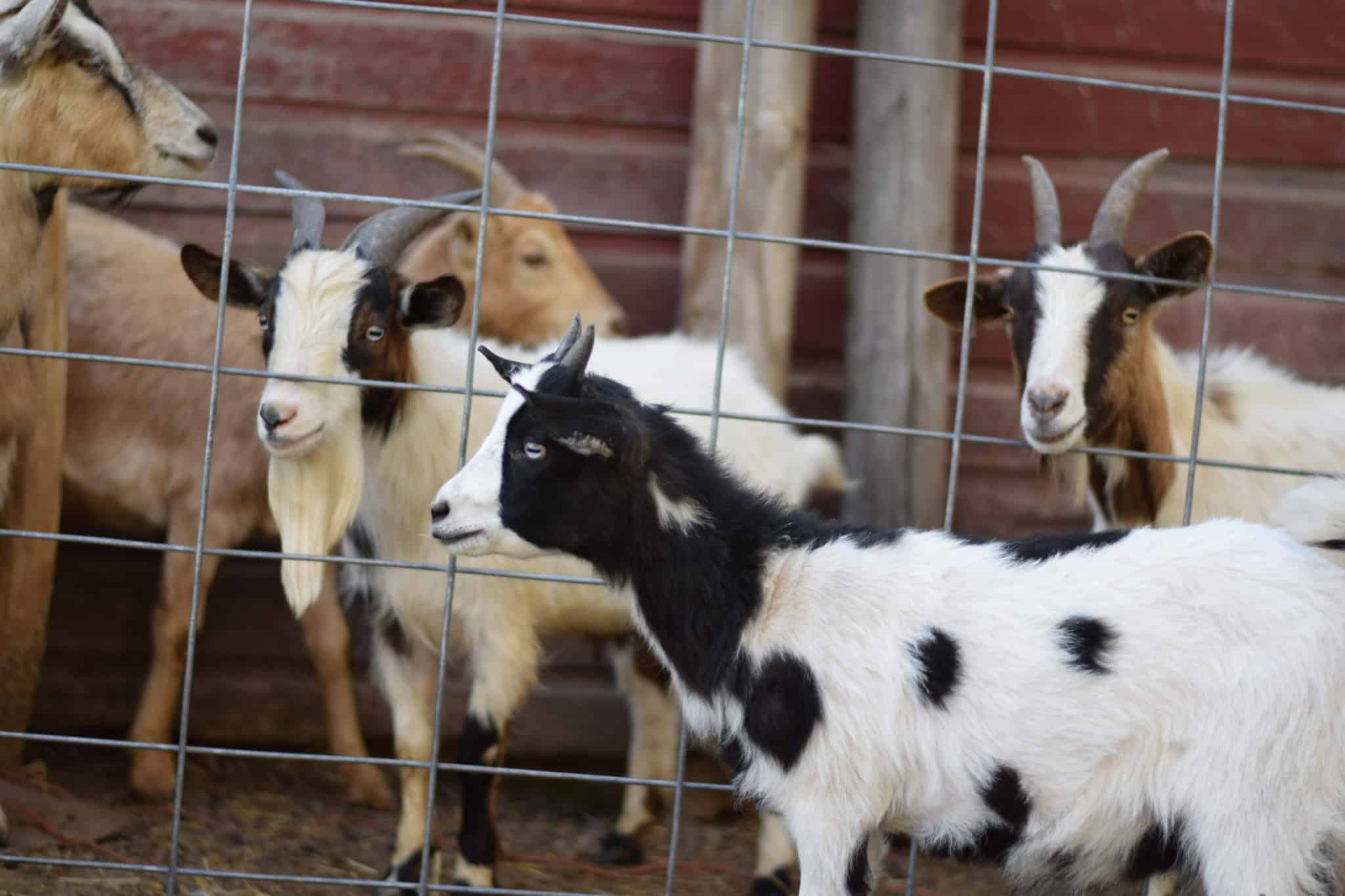
Another option, which we don’t have currently are geese. Many people say that their geese help aid in predator control. Guineas and ducks are both very loud and they alert us of potential danger, so those are other options as well.
In addition, I highly recommend keeping a rooster with your flock. A good rooster will protect his ladies; they alert the other chickens of approaching predators, giving them time to run towards shelter.
Donkeys and llamas are also other livestock guardian options to consider. They work well for some chicken owners, other times they don’t.
They can also be aggressive towards dogs and other canines, which is great if you have a potential coyote threat. But this could also become problematic if you have other dogs on your property.
Donkeys can’t handle multiple attackers and won’t always protect against smaller predators, like raccoons. They are a great option depending on your set up and the types of predators that you’re battling.
So, there are many different guardian options to consider. All have their pros and cons, and nothing is fool proof.
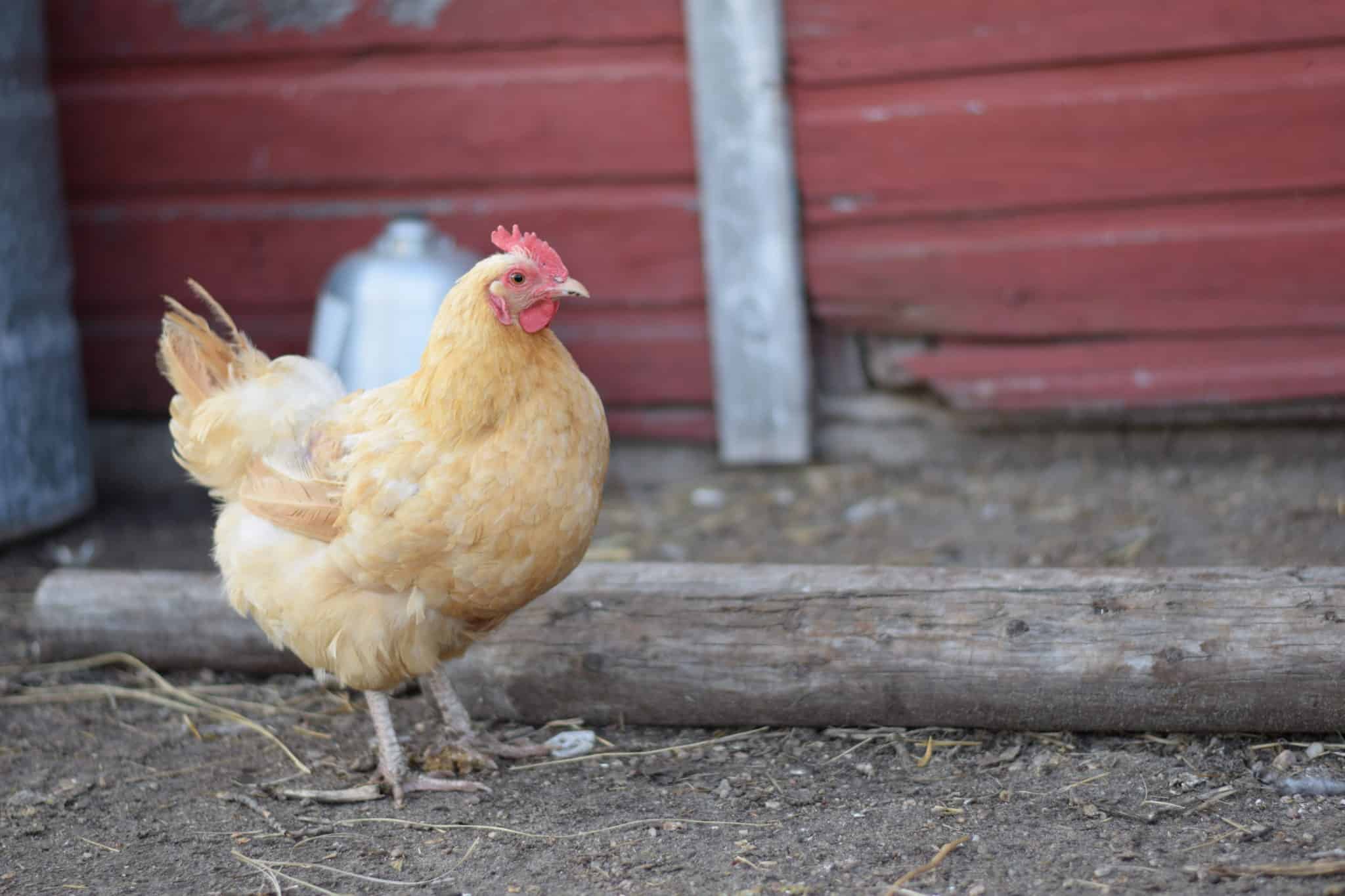
Setting Up a Predator Free Zone
When we decided to stop free ranging, we still wanted to make sure that our ladies are having quality outdoor time. And in doing so we wanted to come up with an ultra secure run.
Because we have predators that dig and even pull pieces of wood off of our coop, a regular walk through and maintenance check is vital. At the first sign of a hole or digging, it needs to be filled and repaired.
For our run, we use cattle panels and line it with hardware cloth. Using chicken wire is just too flimsy and a raccoon will be able to rip right through it.
Also, beware of using simple latches on the gates and entrances. Most predators are pretty intelligent and can figure out how to enter. I like to use a basic carabiner like this.
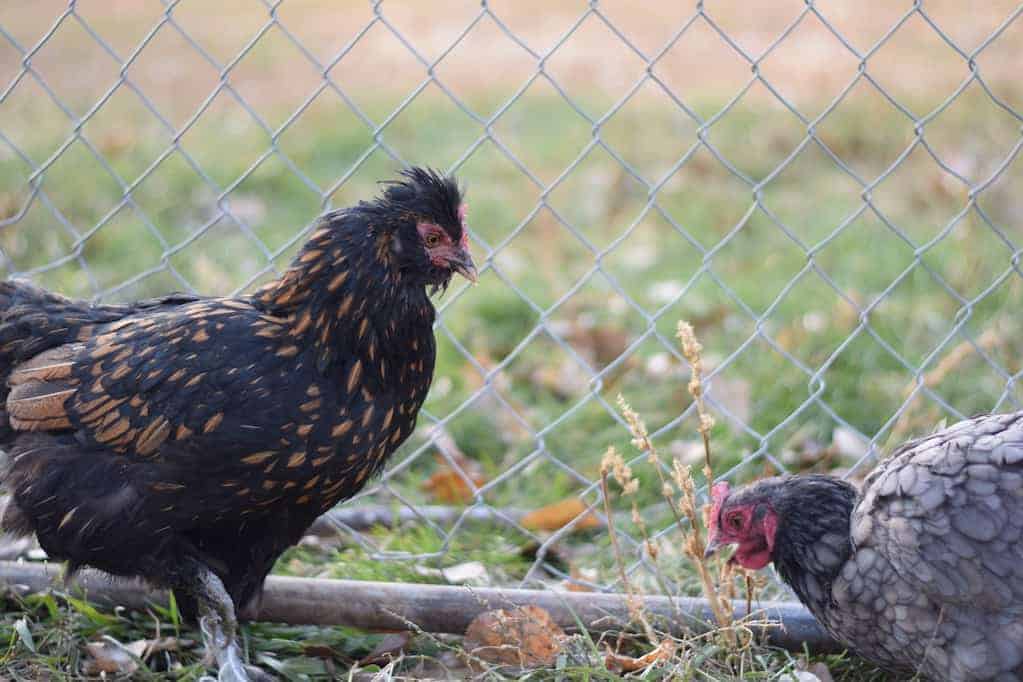
Out of the Box Solutions
One of the easiest solutions is to use electric fencing. This works whenever we have goats moved around the yard this is how we safely “free range” our chickens and goats together. They enjoy some outdoor time together and then each go back to their coops at night.
We love this electric fence from Premier for our goats and it works when we take them out to browse pastures or roam around sections of our yard.
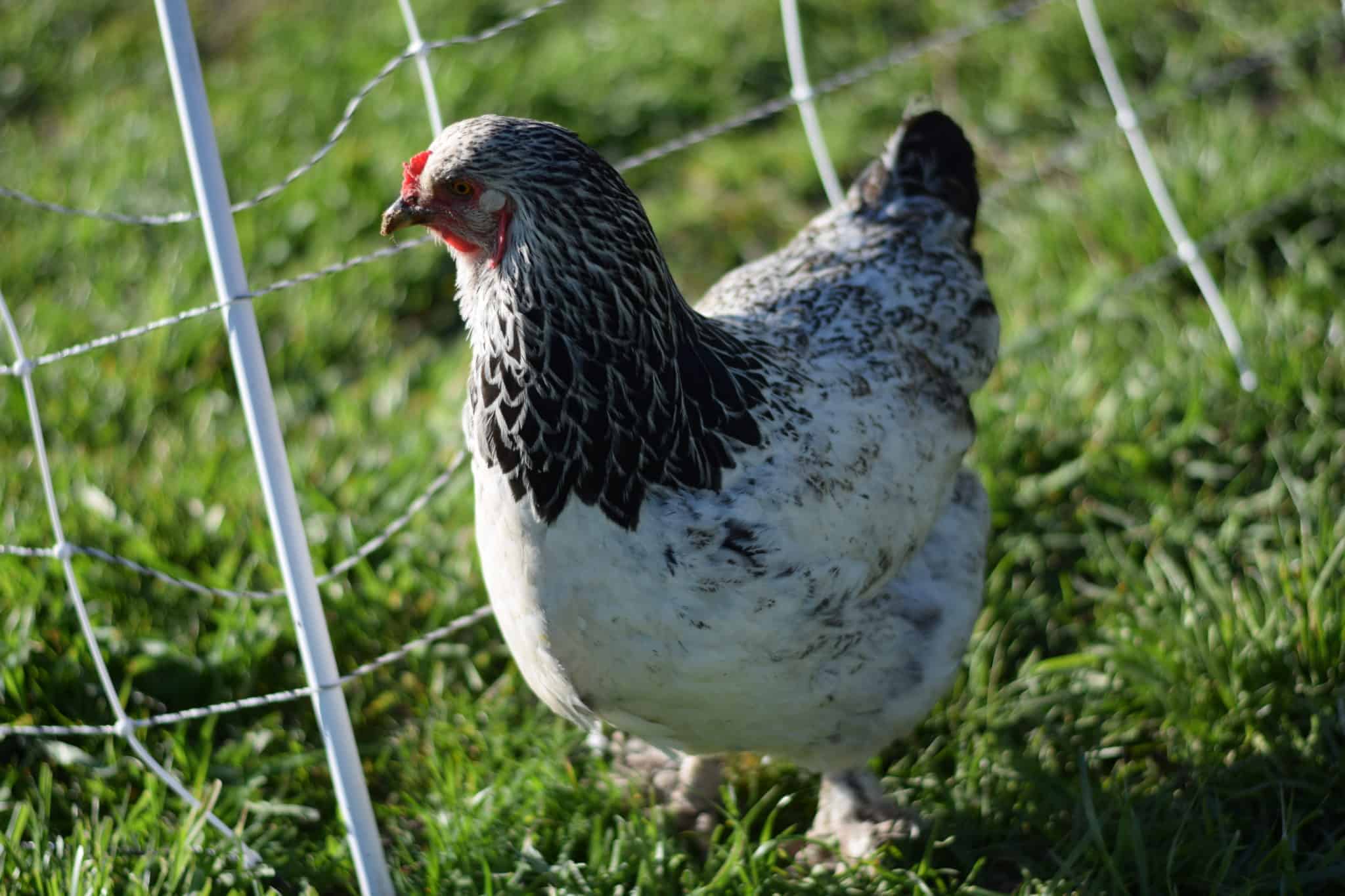
We have a motion detecting light set up which helps scare some of the predators away at night. We use this one which has a solar panel.
One last and final tip for keeping your chickens safe from predators. And this is pretty genius. I really wish that I had tried it from day one!
Use a simple radio and set it up to play on a talk radio station all the time. Or at least anytime when you aren’t outside to watch over the coop. The voices helps to scare off predators by thinking that someone is outside. Pretty simple, right? But somehow I still think it’s pretty genius!
Remember that nothing is absolutely guaranteed, but with a little of these precautions, you can safely protect your flock and give them an almost free range life!

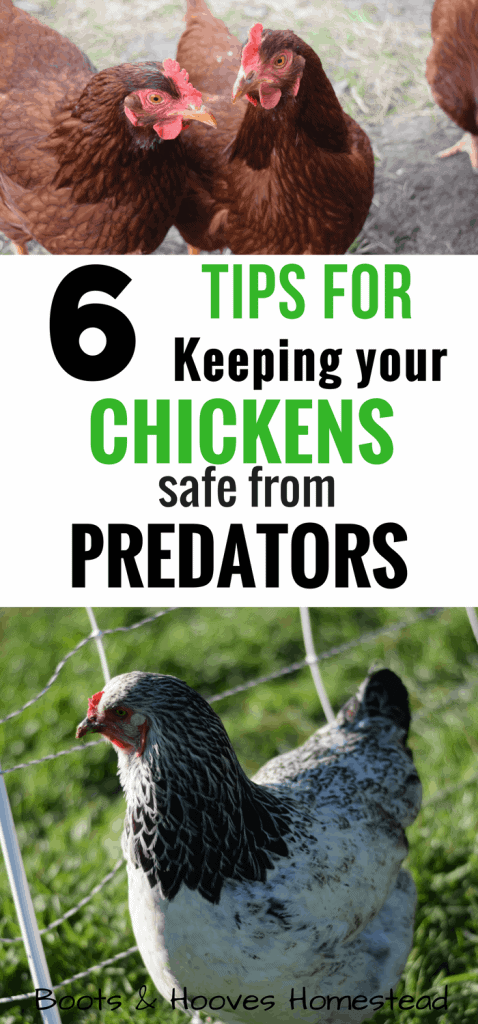
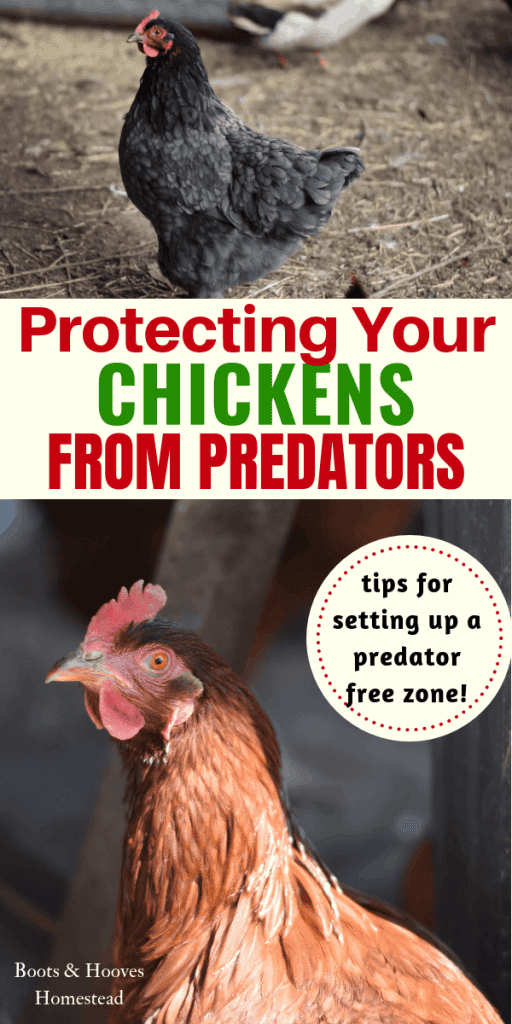
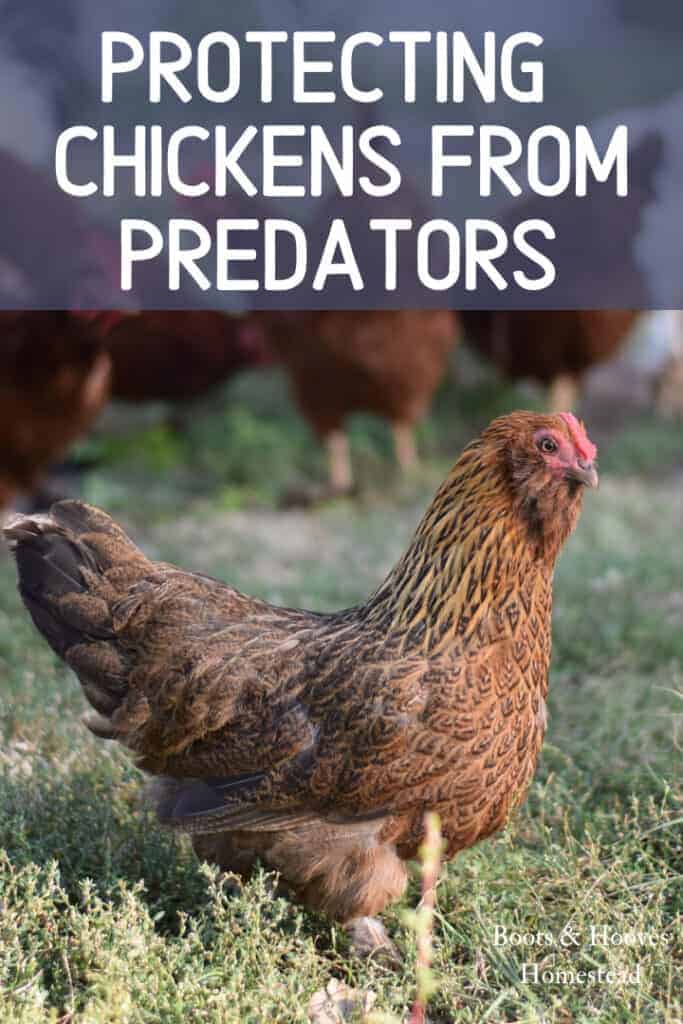
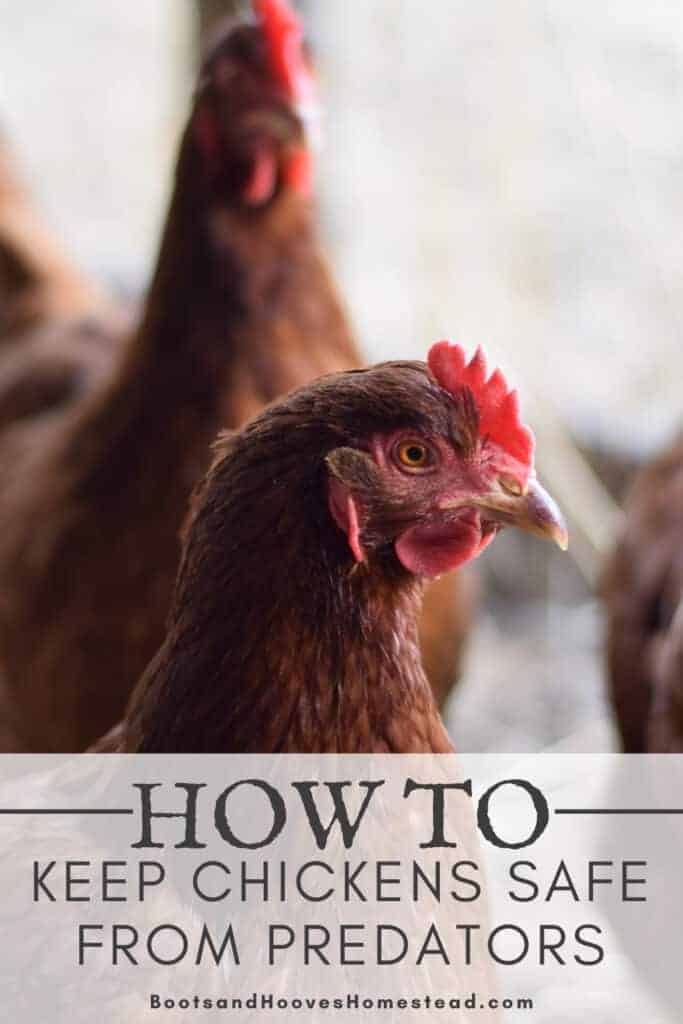
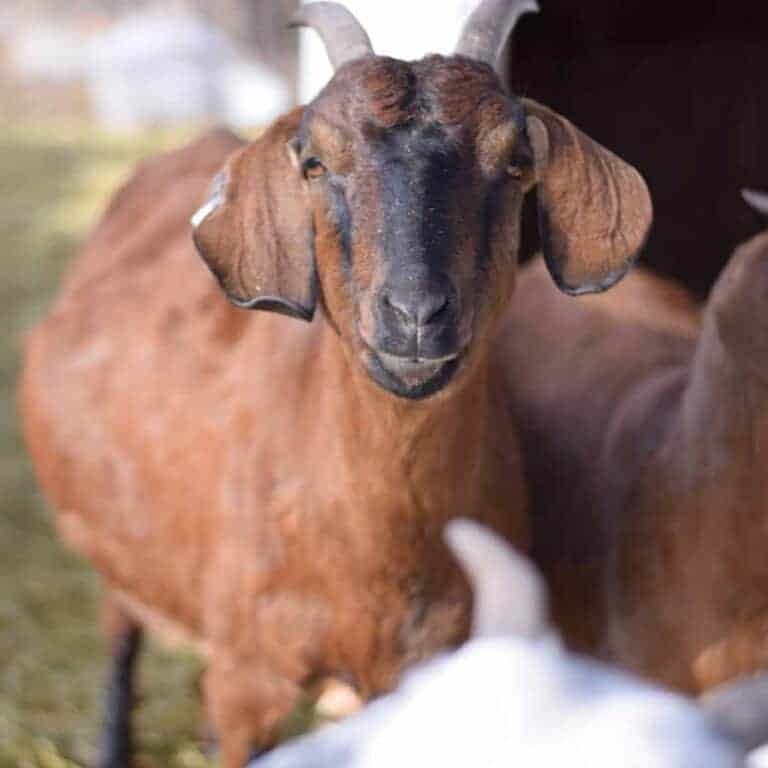
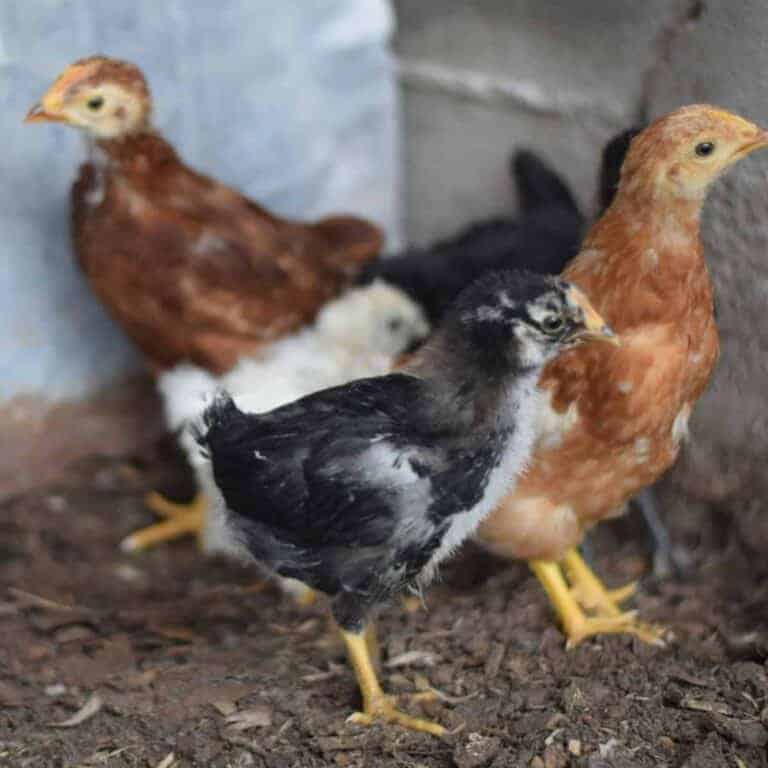
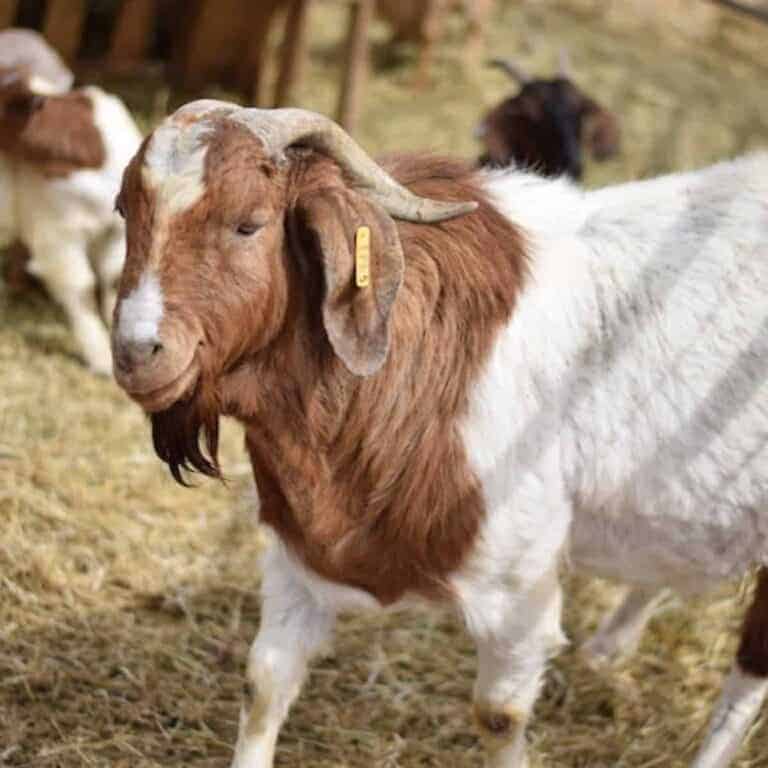
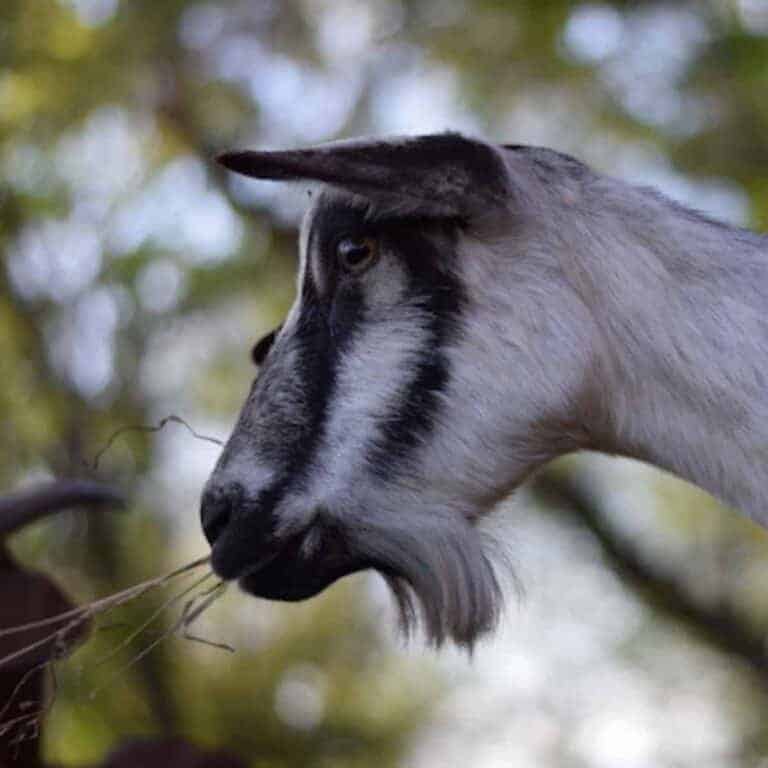
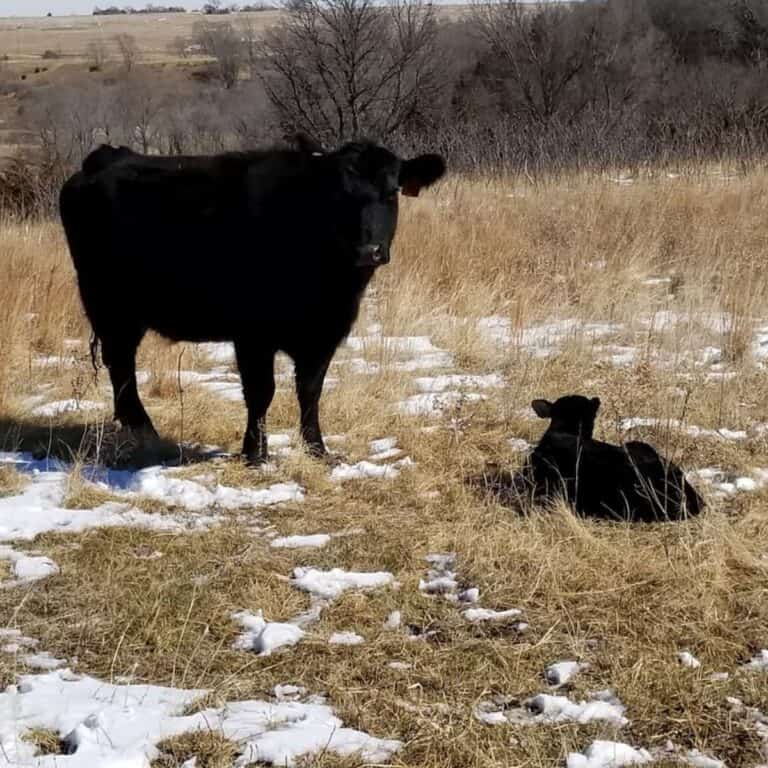

I think we will be going for a sturdy run option to keep the cats and other neighborhood critters away from the chickens and give them the outdoor time without them destroying my orchard!
I love the radio idea too! My girls seem to enjoy music playing whilst I’m gardening!
Chickens, gardening, and some tunes; sounds like a great time to me! 😉
We had considered free ranging, but…..we live in the country, on 15 acres, surrounded by woods. I think we are going to see predators we had no idea we had come out of those woods the second those girls are put in the coop. Hubby is going to build them an enclosed run. I love the idea of a radio! That would definitely help scare animals off!
I loved free ranging at first. But then those darn predators had to ruin everything. Ha! Thanks for reading, Becca. 🙂
There was a chicken massacre at our house and we lost our whole flock this week. Our family dog snapped and broke in to our super secure chicken run. It was very heart breaking for myself and my kids. I can not get rid of our family dog though, as he has been part of the family for 10 years. I really enjoyed having our chickens and took pride in their awesome coop and run that we built. But I would hate to start again only for the same result. Has anyone delt with a dog situation that they were able to over come?
Oh, that’s so sad. I’ve totally been there and it really is heartbreaking. So, I totally feel for you. My first suggestion is if you’d like to keep chickens and keep your family dog. Is to re-evaluate your set up. If your dog is able to get in, other predators will get in. And unfortunately once that dog has tasted blood, it’ll be more likely to go after them again. The next thing that will help tremendously, is to add an electric fence to your set up. I have a link in this post to the one that we use here, the poultry version from Premier One has smaller holes and it works well for us. So far, we haven’t lost chickens to predators while using it. So, I totally recommend it! 🙂
Excellent information. I’m pinning this so I can re-read it as I get closer to moving to my land.
Thank you! 🙂
We resolved our issues from a predator hawk with the talk radio. We tried the fake owls and that worked for awhile until a few more hens went missing. To verify the radios effectiveness, my aunt had accidentally turned the power switch off during the day. When I got home from work I noticed the radio was off. By the time I walked in to turn it back on I heard our rooster loud and clear with his alert signal. Hens were cackling. Running out to the commotion I nearly tackled the hawk as it had already started plucking the feathers off one of the older hens. Safe but petrified I placed the hen back in the coop. She recovered and the radio has kept them safe once again.
I’ve heard some coyote nearby and found scat in the yard but the radio has kept them from braving up to the hen house.
I recommend giving a radio a chance.
Isn’t it pretty crazy that something so simple does the trick? I wish we started it from day one. 🙂
Premier 1 electric fencing was what stopped predators from getting my chickens and ducks as well. I haven’t lost a single bird since I set the fence up months ago. Right now I have the fence completely surround the coop, which has 1 side against the house, so nothing can dig under the coop. If I don’t get home at night before dark, they are still safe. I’ve come home at midnight before and found the ducks still in their pool, and the coop door open, but everyone still alive. Electric fencing is my #1 choice for predator control now.
Thats awesome! It sure is a great help and really protects the flock. 🙂 Thank you for sharing!
I have a flock of chickens, ducks, and guineas. I live in an urban community and don’t free range my birds. My coop and run are as secure as I can make them. I use hardware cloth just about everywhere. I have the same predators as you except I have the two legged kind as well. Yes people. Last summer I thought I had misplaced the key to the lock on the run and use the spare key. I found one hen with a broken neck, another drowned in 3-4 inches of water left in the ducks pool, and a duck that ultimately died from her injuries. I started really paying attention and realized that my original key had been stolen and my birds had been purport killed and left for me to find. I noticed that the padlock had been put back on differently. The deaths also corresponded to times when I had been away from home.
Oh no, that is terrible! I am so sorry to hear about that, Lin! Makes me really sad to hear about your poor animals 🙁